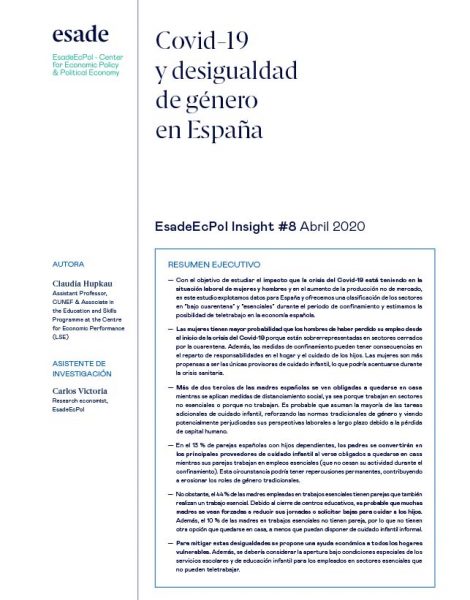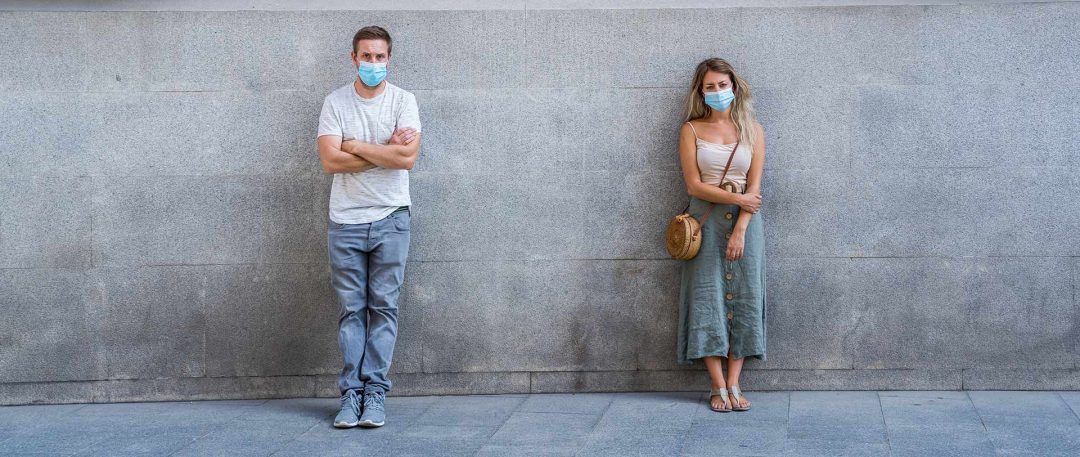
Covid-19 and gender inequality in Spain
Claudia Hupkau, Carlos Victoria
24 Apr, 2020
EsadeEcPol Insight #8
Executive summary
- We study the impact of the Covid-19 crisis on the employment of women and men, and on the increase in non-market (or home) production. We use the Spanish data available and offer a classification of the locked-down and critical sectors during the period of quarantine, and estimate the degree to which teleworking is possible in the Spanish economy.
- Women are more likely than men to have lost their jobs since the start of the Covid-19 crisis because they are over-represented in locked-down sectors. In addition, quarantine may have consequences in the division of responsibilities in the home and childcare. Women are more likely to be the sole providers of childcare, and this may be accentuated during the crisis.
- More than two-thirds of Spanish mothers are required to stay at home while social distancing is enforced, either because they work in non-critical sectors or do not work. It is probable that women undertake the majority of additional childcare tasks, thereby reinforcing traditional gender roles and potentially harming long-term job prospects due to loss in human capital.
- For some 13% of Spanish couples with dependent children, the fathers have become the main providers of childcare – as they are required to stay at home while their partners work in critical jobs (with work continuing during quarantine). This circumstance could have permanent repercussions and help erode traditional gender roles.
- However, 44% of mothers employed in critical jobs have partners who also work in critical jobs. Due to the closure of schools and childcare facilities, it is likely that many mothers are forced to reduce their working hours, or request leave of absence to care for their children. In addition, 10% of mothers in critical jobs do not have a partner, and so must stay at home unless they can make informal childcare arrangements.
- To mitigate these inequalities, cash transfers to all vulnerable households have been proposed. In addition, consideration should be given to opening childcare facilities and schools (under specific conditions) for employees in critical sectors who cannot telecommute. These conditions should be based on: (1) the availability of diagnostic tests for families of essential workers; and (2) quarantine during the period of active infection for the whole family if Covid-19 is detected in the family.

Read the full article:

Claudia Hupkau
Assistant professor at CUNEF & Associate in the Education and Skills Programme at the Centre for Economic Performance (LSE)
View profile


